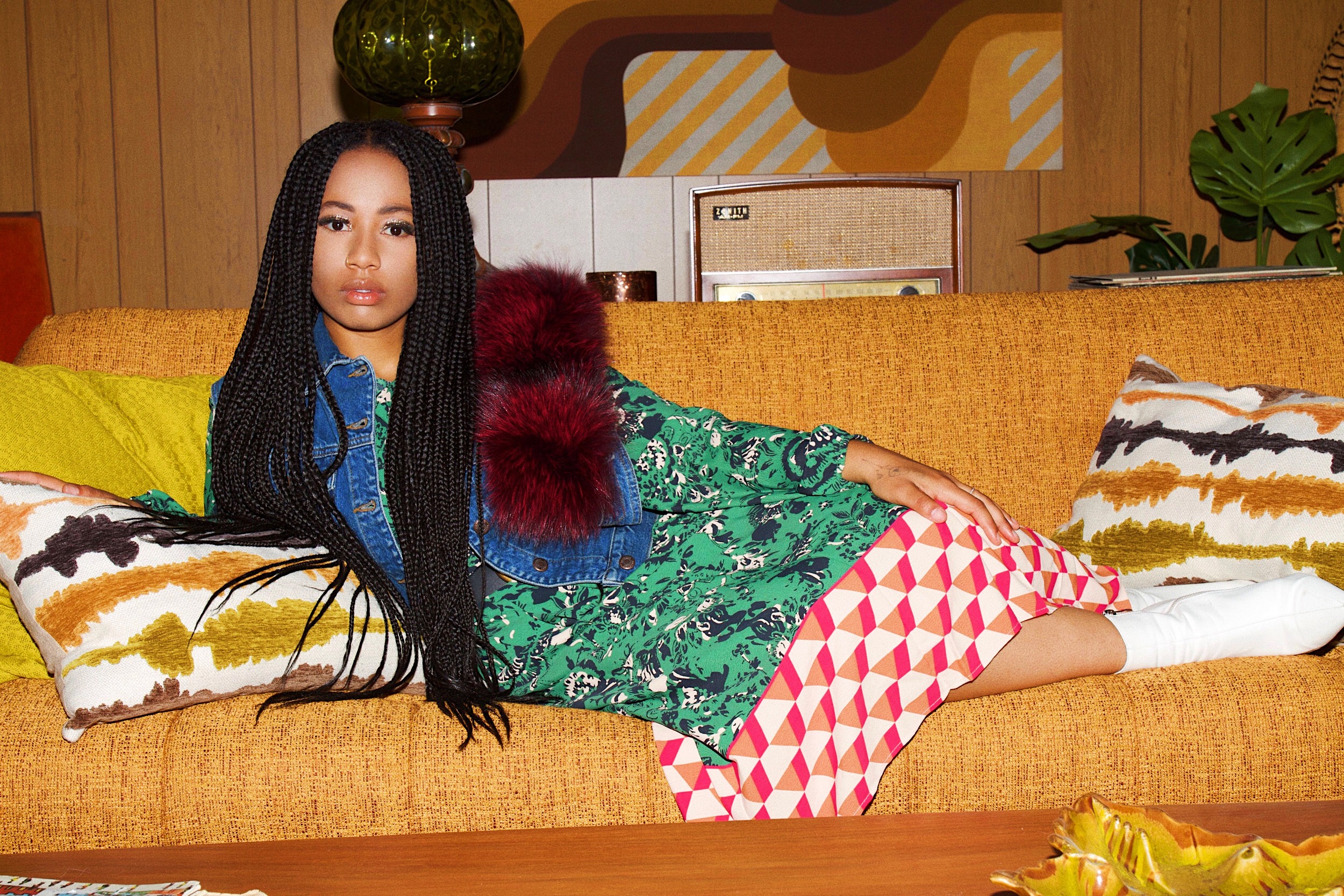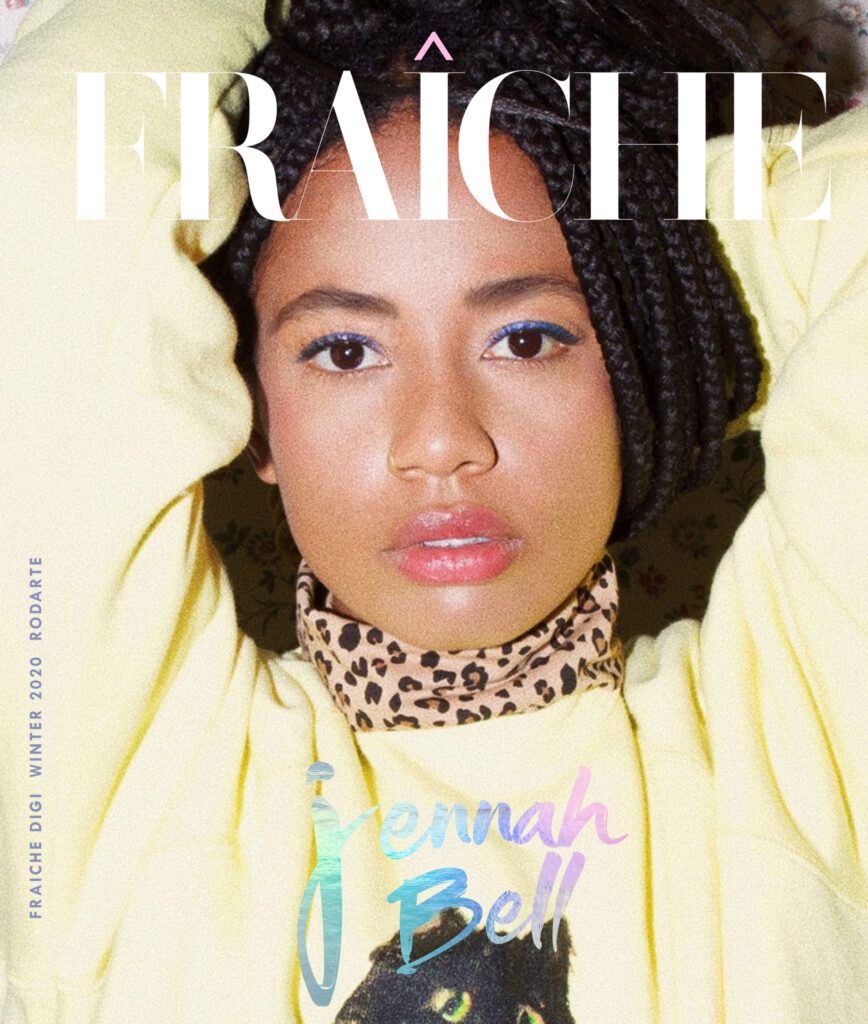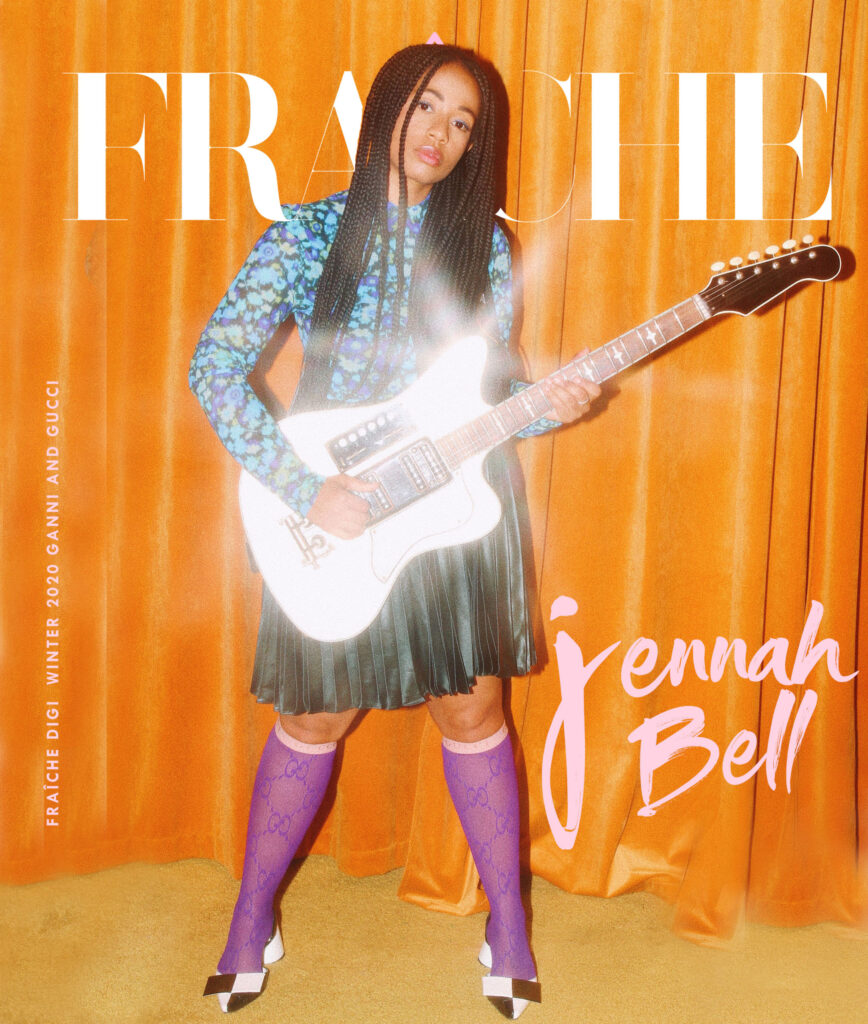
How did the legacy of your father shape your artistry as a musician?
“A lot of the music that he introduced me to has done that, specifically a lot of the jazz and just a lot fundamental voices, like that ones that shaped the whole idea of what a great voice is: Barbra Streisand, and Whitney Houston and Aretha Franklin; much of that filtered into me building something I could take from and begin to understand what my voice sounded like and how I understood “good,” music was for me. I spent a lot my life thinking that my dad identifies as a ‘musician’ because he plays the saxophone (among other instruments) and composes. Though, later on in life, I realized that he actually identifies as a songwriter. I thought that our paths were very different when I was younger; I wasn’t necessarily attracted to being a musician or an instrumentalist. I was more attracted to storytelling. A lot of the discipline of practicing and staying focused, waking up and recommitting everyday—came from my dad as well. Taste first and then the discipline.”
What else was from your youth has aided you in the realm of your artistry?
“Growing up in Oakland, most of my friends were Jewish and we were Muslim, and eventually I went to a French Catholic school all of which was influential in my development as a songwriter and poet. I’ve always been fascinated by differences, or distinctions, if that makes sense; I notice things that make people unique. I’m not a “belter,” a classic soul voice. My voice is quiet for the most part, more intimate; it’s not a power voice like Aretha Franklin or Dionne Warwick. But things change—standards change. Women are having less children. The nuclear family is no longer the blueprint for family. Femininity is no longer defined by marriage or even having children. That’s a big change, whereas in the ‘60s/ ‘70s if you didn’t have a family to take care of then you weren’t woman enough. We don’t have that model anymore. Still, I constantly revisit that era in music as that’s what I was hearing at that time in my life—a lot of Beetles and a lot of Stevie, a lot of Joni Mitchell and James Taylor, Bill Evans. A lot of classic songwriters that partly defined those times in their own unconventional ways.”

Is that where you see yourself in regards to your genre?
“I’d like them (fans/listeners) to put on a song. Because more than not wanting to be in a box no one wants to be put in a box in any part of life, I also find it very difficult, considering even the influences I just named, to limit the reach of an artist. Songwriting is genre-less; it’s just writing the song. You’re at the service of the story and the story doesn’t necessarily have a genre unless the writer assigns it one. The genre helps with the familiarity of elements in the music and knowing where you’re supposed to land. But I’d say for a musician in this time period, it’s going to become increasingly harder to 'genre-fy' considering that this will be the base of even younger musicians. That’s going to make a whole new style of music that won’t be R&B and Hip Hop."
Musicians like Miguel and Solange early in their careers began to define a sub-genre within R&B, alt-R&B, which has now sprouted even more sub-genres. Do you foresee something along those lines?
"I was actually reading earlier that Tina Turner did a Country album where she did a cover of a Dolly Parton song and the article mentions how you can’t find the album on any streaming service. The album itself was nominated for a Grammy or some prestigious award like that but in the R&B category because they still hadn’t found a way to give artists the multiplicity they deserve, particularly Black artists. This whole concept, especially with the example of Country, is that it is an inherently white art. Which is not true, because it was developed from Blues (which WE know the history of) and there are a lot of Black artists that make quality Country music. But, because of this 'genre-fying' they are not necessarily recognized in the category or played on Country radio, let alone celebrated as the great contributors they are. It’s still one of the most insular genres in existence, more than any other genre. It’s not new, but it is actually a form of segregation that is more palatable than other blatant forms. But genre is just a way for people to still racially compartmentalize as much as anything else."
If they could still call Black music “race music,” they would.
“We are probably in the biggest war with language on such an extreme front, that no one is talking about. Because how we verbalize things is how we understand them and because is more fragmented than it’s ever been understanding is diminishing, and the way in which we communicate all of this subtly is dependent on the expansion of language. And, in some ways it has expanded, like think about how an entire emotion can exists in an emoji, for some people that might be the “beginning of the end” but hieroglyphs are not a new thing. It’s actually a cool way to subtly express emotion, but it should be built upon actual language and included in an expression of all forms.”
What about criticism? Do you listen to yourself?
“I feel like my understanding of it as a young person learning about what recording was (spawned my feelings about it). I had a tape machine, like the old school one that makes the glitch sound when you push the buttons down to record and reel back the tape and you do it again. And that’s how I learned how to sing—I had to listen to myself. So, part of listening to yourself for me is wanting to make something that I like. If you don’t rock to your own stuff, why would anyone else? If you don’t like what you’re making, don’t make it. Understand where you’re coming from by listening to it. If I like one of my songs that’s good news; It’s a self-love practice. You love what you do than no one else can tell you whether it’s good or not. It’s just about how it makes you feel. I believe in that indication. I don’t believe in marketing in a sense where ‘I get to tell you what you’ll like about what I do.’ You found me and I just put the invitation out there by releasing music and you made your way to me and that’s all that I can ask for. Even with so-called “negative feedback,” I navigated to a place of understanding that I was assessing those criticisms against my own opinions, realizing that criticisms and compliments are really the same thing. They’re both just someone’s feedback. Compliments and criticism are not functional things, they’re opinions they are completely subjective. So, even with the best intentions or the highest of praise or no accolades at all, it is still someone’s view of you and of what you do. Take it all at the same level, thank you or no thank you. If all art depended on a compliment or a criticism, no one would make it.”
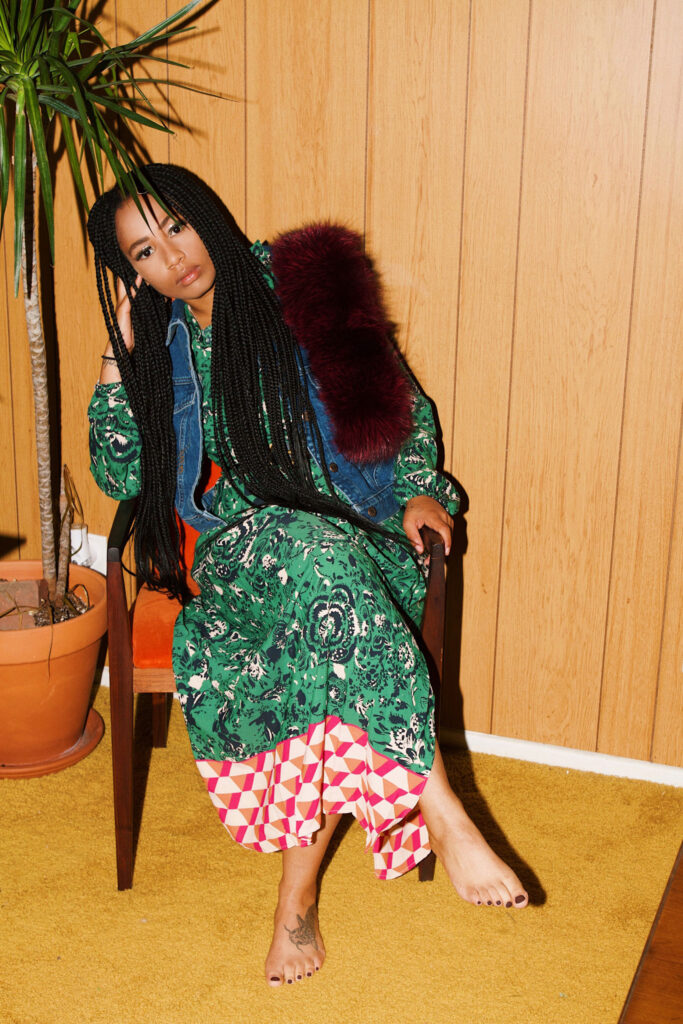
“Femininity is no longer defined by marriage or even having children.”
Now, regarding your music specifically, are your songs from personal experiences or did you take into account of other people’s experiences as well?
“Yes, they were all personal experiences. Well, I think when you take in any experience whether it be direct or indirect, it’s still going through a filtering process. Something happened around me and I realize that I felt a way about it. Like “3:59 New York” wasn’t actually about me moving to New York; it was about a friend of mine moving to New York and I had wanted to move as well but wasn’t ready, and so I put that experience in that song. It’s kind of this longing of wanting to be there and that was still my experience. Alanis morissette is a huge influence. My Mom brought us “Jagged Little Pill,” and I vividly remember when it first came out listening to it for the first time, hearing the first song with the harmonica (Bell speaks of “All I Really Want,” the first track off of Alanis Morrissette’s 1995 debut iconic album “Jagged Little Pill”). The world had never heard anything like that before; I hadn’t either, and I took it in so fully. So “3:59 New York,” I’m sure has a trace of Alanis Morissette in it, I hope to God. “Candied Daylight” was inspired by my Mom, “Can’t Be Too Careful,” was postdating someone and finally getting to a place of being over it and being like man, I never want to go through that again. Though, you can’t really avoid ever doing that again…or at least you think you can’t. So, yes, all of them are direct experiences in my opinion, some more direct than others.”
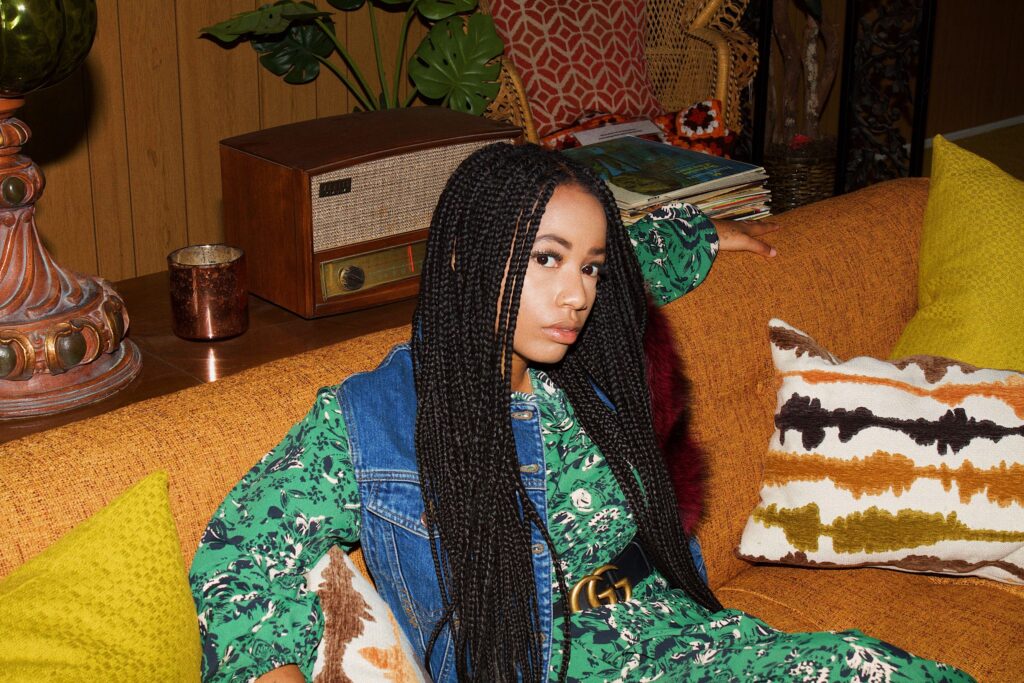
Your Album - Anchors & Elephants: What is the meaning behind the title?
“The title was something I had for a while I thought it would be a song. It popped into my head years ago and just kind of logged as something that might be the seed for a song. Over the years, more songs were written, and the album came together as I was looking at the story that was the album, it really was Anchors and Elephants; the things that were holding me down and the things that I wasn’t saying. So, a lot of it is not as confessional in the sense that the people that the songs were about needed to hear them. It was more of just me working my way through my twenties and understanding who I was becoming mentally and physically—discerning what I had taken from those moments and forming my outlook at the beginning of a new chapter. It is a heavy record with a kind of Lilith. Anchors and Elephants in itself as a phrase is light but in meaning it’s much heavier.”
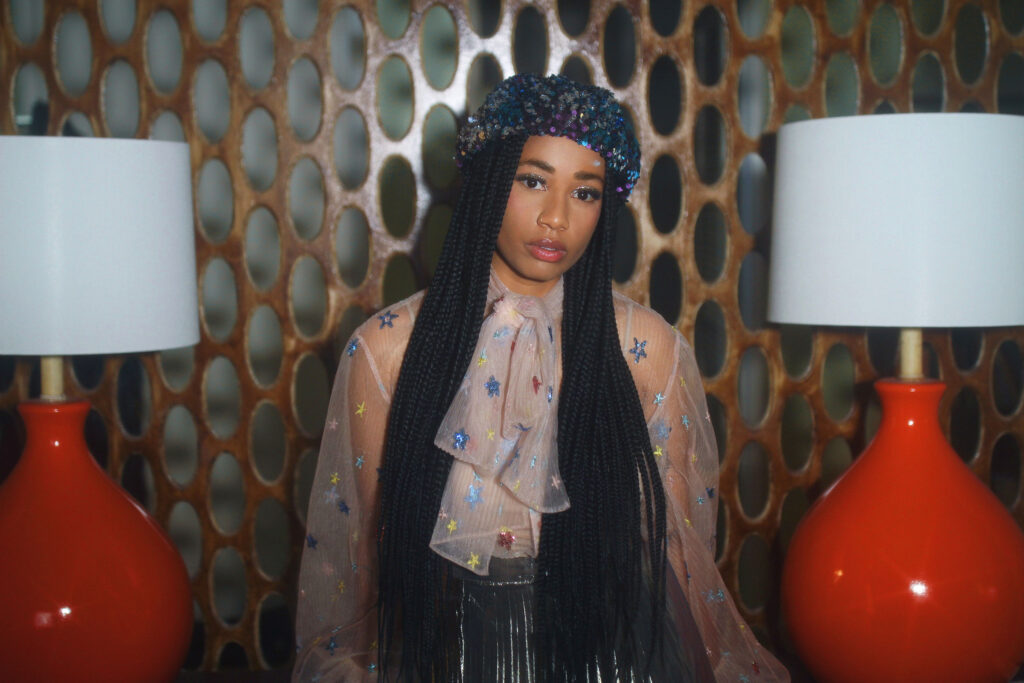
Could you elaborate more on that?
“That’s kind of how I feel received as a person. There’s this youthfulness or this kind of dreaminess about me that I’ve heard is a thing, and then you get to know me and then you’re like, “are you ever out of your head?” You know, “are you ever not thinking?” So, it’s kind of an appropriate title in that sense of whom I feel like as a person. Ray Bradbury (“Fahrenheit 451”) has a seminar that he did where he talks about the writing process and I believe he compares it to like, following footsteps in the snow; a lot of the times I feel like as a writer I’m following footsteps in the snow or I’m just reaching for things but I don’t know what I’ll pull down. It’s not totally up to me. With something like Anchor’s and Elephants, I had it sitting but I didn’t know what it was for. It would be amazing if I really was as intentional as that.”
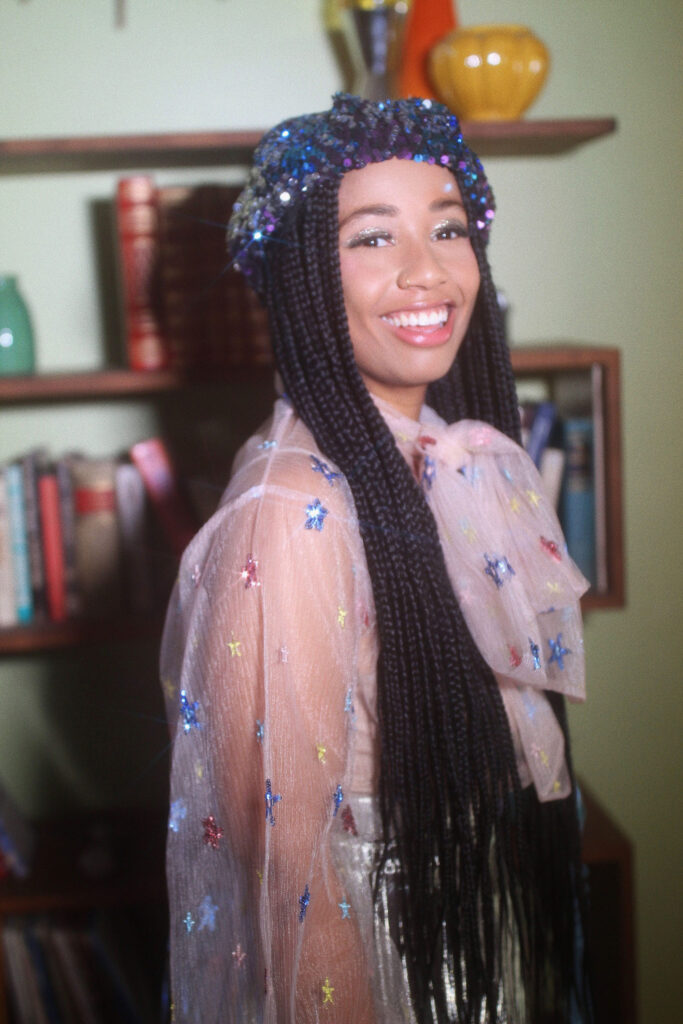
“A lot of the times I feel like as a writer I’m following footsteps in the snow or I’m just reaching for things but I don’t know what I’ll pull down.”
With your background as independent artist, would you want to use it to get ahead in this business?
I don’t believe in nepotism. I can’t stress enough that as proud as I am of my family and who they are and what they’ve accomplished those are not my accomplishments. If anything, their accomplishments taught me how to/made me want to do that on my own. That actually inspired my independence because both of my parents are self-made. I have to do it on my own. It’s actually not even an option for me. It is yes, by choice in one respect. In another it’s about listening to yourself. We all have a built-in system, an intuition that is your compass that you’re supposed to learn how to listen to, and understand how that voice functions, not focusing so much on what that voice is or what it should say to you.
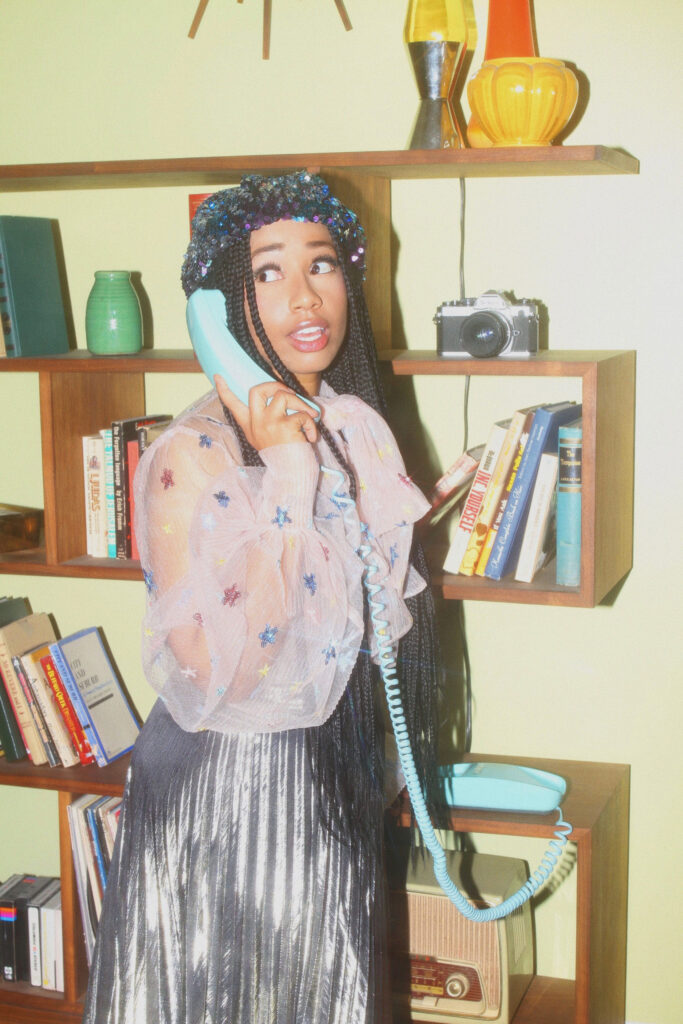
“My first encounters with romantic love were learned from the movies. Or at least, what I thought was love.”
What else can we expect from Jennah Bell for the rest of the year to come?
Oh, I don’t whatever anyone asks me to do frankly, being an independent musician you go with the flow because it's not like having a team or not having the foresight to know what’s going to do what…like that Good Trouble thing was presented in January, they found that song [Bell’s hard-hitting song “Can’t Be Too Careful,” played during an episode of the hit drama series Good Trouble on the Freeform Network this past April], mind you that song was released last July 2018 and I didn’t receive an email that they were going to use that song until like the third week of March 2019). So, it’s things like that. There are things that I want to do specifically and making more music is definitely one of them; that’s the part I’m in control of. I’ve written and am in the process of a writing a new record, too.
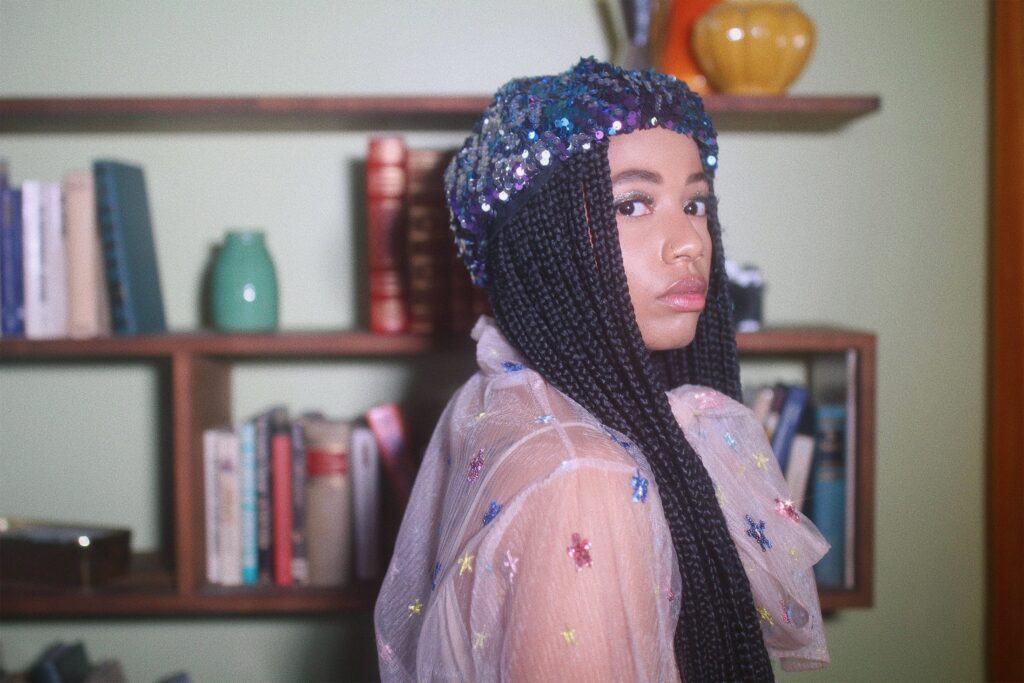
On her newly released single, "Arboretum Lights"
My first encounters with romantic love were learned from the movies. Or at least, what I thought was love. So, by the fourth or fifth time I found someone worth “throwing it all away” for, I was an expert at passionate chaos and reckless decisions. Decisions that left much to be desired and love nowhere to be found. If you hand your heart over enough times, with no one to care for it, the fatigue of feeling unhinged starts to hit. I’d sober to someone I didn’t recognize, blame my heart for its foolishness, and just when reason seemed to make its triumphant return, a hopeful gesture would make an enticing proposition, and manage to convince me that just one more act of devotion might set me free. More than once, I’ve been seduced by the promise of love. It took me a while to seize the blur of seconds between deciding I was “in love” and the next bad decision, to break the loop. This song is a story about the blur.
Jennah Bell talent transcends many facades in music, artistry, and industry; she has a keen ear for music supervising and storytelling. It comes from knowing herself and knowing what she wants for her legacy. By employing patience where there is none, finding reason within irrational perspectives, and feeling secondhand and firsthand simultaneously, she refuses to allow anyone else to dictate her story or her songs. We all strive to be that individual, aspiring towards the best things in life, the most accurate and authentic versions of ourselves, and to either be embraced for it…or perfectly fine withstanding alone.

